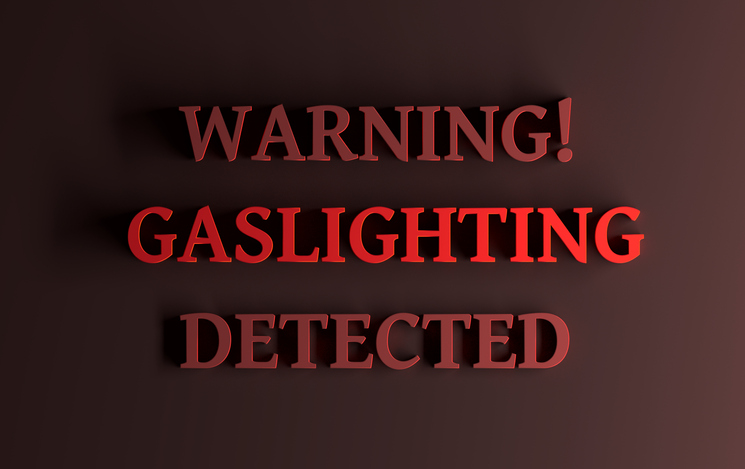You may have heard the term gaslighting and wondered what it means. In this post, we’ll discuss what gaslighting is, how to spot it, and what you should do when you’ve experienced gaslighting.
What Is Gaslighting?
The term gaslighting originates from a 1944 film called “Gaslight,” where a married man deceives and manipulates his wife into believing she has a mental illness by slowly turning down the gas lights in their house and telling her she’s just imagining things.
In psychological terms, gaslighting is a form of manipulation where an abuser will cause the victim to doubt their sanity, memory or judgment. When this happens over time, the victim will start to rely less on their own perceptions and thoughts and more on their abuser.
Gaslighting doesn’t happen in solely intimate partnerships — it can occur in various circumstances, including at the doctor’s office or with a parent, employer or friend. Gaslighting can include someone saying things such as:
- That never happened.
- Your mother always comes up with these crazy ideas and puts them in your head.
- You’re being way too sensitive.
- Are you sure it happened that way? Your memory isn’t so great.
- You’re being so hysterical. You must be on your period.
- You’re talking nonsense. I don’t even understand what you’re saying.
People may engage in unconscious gaslighting as well. Some examples include:
- Automatically shutting down someone and telling them they’re wrong for having a differing opinion.
- Not seeing anything wrong with lying.
- Not believing fights are a big deal.
Warning Signs of Gaslighting
If you believe you’re being gaslighted, watch for the following signs of gaslighting:
- You feel like you’re losing your mind.
- You always feel confused.
- You feel like you’re always wrong.
- You feel isolated and alone.
- You believe people cannot be trusted, including close friends and relatives.
- You can’t trust yourself.
- You always have an excuse for your abuser.
- You wonder if you really are too sensitive.
- You don’t feel like yourself — you’re tired and unhappy.
How to Respond to Gaslighting
If you feel like you’re being gaslighted, you do not have to endure this psychological abuse. Subtle emotional abuse may be eroding your mental health, so it’s important to take steps to end the cycle.
Here are four things you can do to help yourself leave a toxic situation:
- Gather evidence: You need to confirm you are in touch with reality. Take voice notes, keep a secret journal and take pictures of what’s going on in your life.
- Reach out: You may have been isolated by this person, so reach out to a trusted individual such as a friend, relative or therapist.
- Practice self-care: Focus on what you enjoy, including hobbies, friends and pets. You can also find new affirmations to rebuild your self-esteem and trust.
- Develop a safety plan: If you feel like you are in danger, create a safety plan, which involves getting out of an abusive situation.
Get Help With Gaslighting at Taylor Counseling Group Today
Whether you are a victim of gaslighting or are gaslighting others or yourself, you don’t have to face this alone. If you want to learn more about how to deal with gaslighting, contact Taylor Counseling Group today and book an appointment with one of our counselors.





